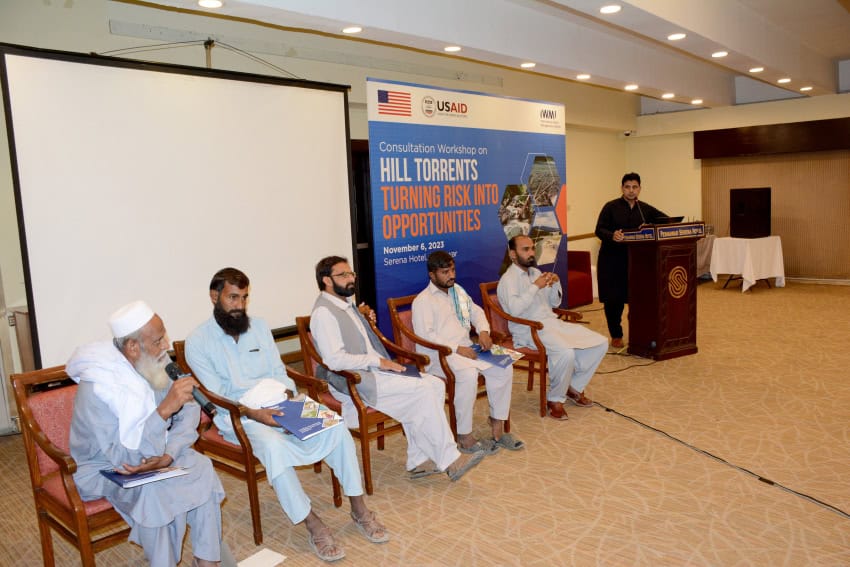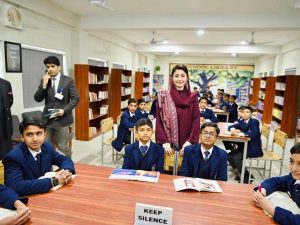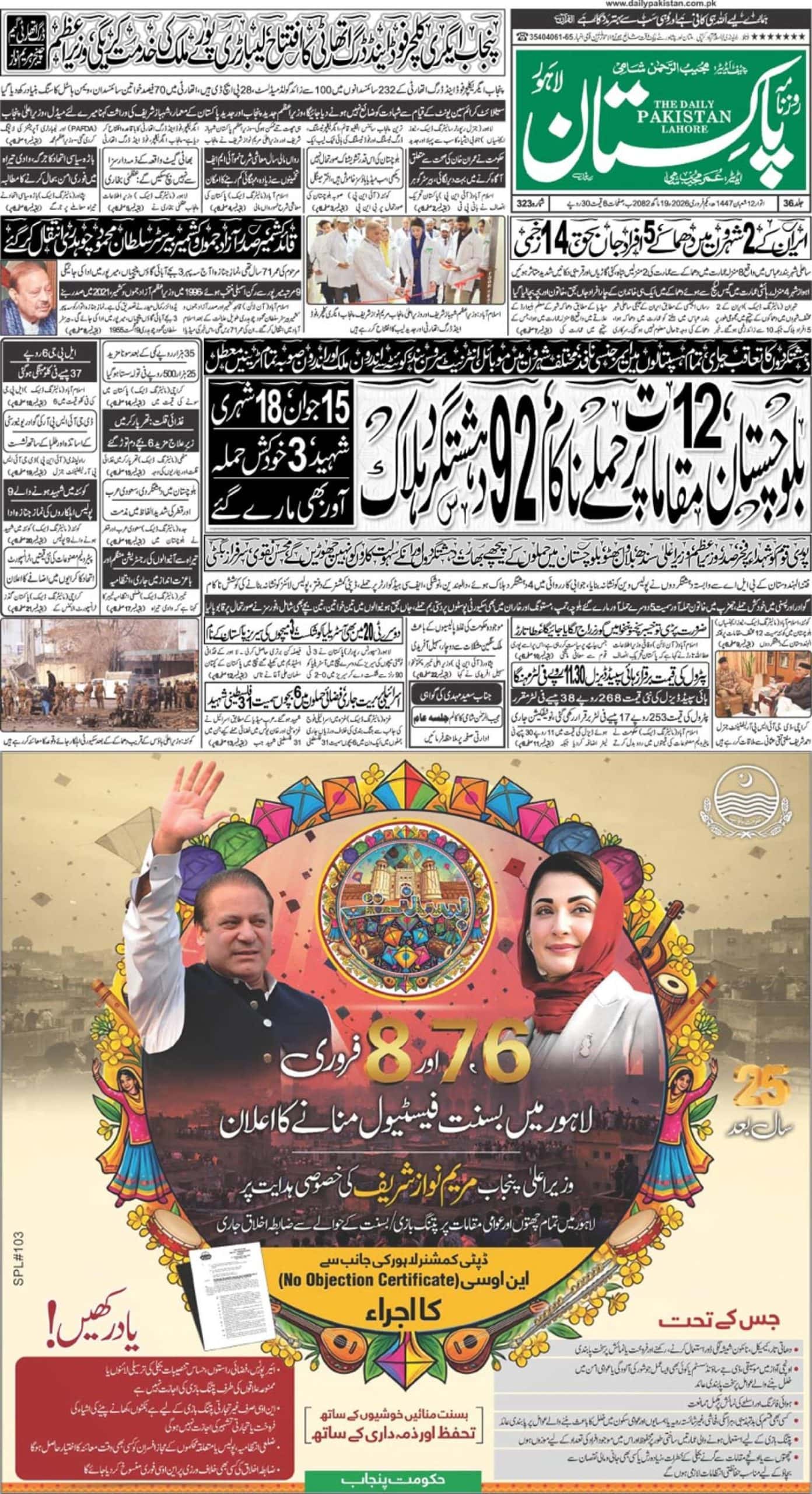PESHAWAR/Pakistan – Climate change has altered precipitation patterns, leading to increased rainfall and more severe flooding. While water is a valuable resource, it can cause devastating consequences if not managed properly.
To mitigate flood risks, it is essential to empower local communities that are most affected by these events. By providing them with technical knowledge, resources, and tools for effective water management, we can turn this flood risk into an opportunity for economic growth.
The International Water Management Institute (IWMI) in Pakistan, with support from USAID, organized a consultation workshop in Peshawar. The workshop focused on the theme of “Hill Torrents: Turning Risk into Opportunities.”
At the workshop, community members and stakeholders gathered to collaboratively present and explore solutions for water-related issues in the challenging context of hill torrents. Dr. Sarfraz Munir, Researcher at IWMI Pakistan, praised the engaging discussions and expert insights.

Mr. Muhammad Nawaz, a Development Specialist at USAID/Pakistan, expressed the aim of their consultation to encourage cooperation and involvement with appropriate government departments, policymakers, the private sector, academia, and, most importantly, the local communities. He emphasized their commitment to listen and learn from firsthand experiences to collectively address and mitigate the challenges posed by changing rainfall patterns and the increasing threat of floods.
“The Community Listening Session” provided an opportunity for community members to come together and discuss their experiences and challenges with handling heavy rainwater that flows down the hills in the form of hill torrents. During this interactive gathering, community elders shared their perspectives and insights, making it a valuable platform for meaningful dialogue.
During the collaborative discourse, the participants from Daraban Zam, Tank Zam, and Gomal Zam areas of District Tank and Dera Ismail Khan, Khyber Pakhtunkhwa, discussed potential solutions and strategies to convert the inherent risks associated with hill torrents into constructive opportunities for the benefit of the community.
At the productive discussion, representatives from various sectors, including non-governmental organizations (NGOs), the private sector, and the public sector, delivered informative presentations. The notable speakers included Engr. Tariq Ali from the Irrigation Department in Khyber Pakhtunkhwa, Mr. Munawar Khatak from HELVETAS Pakistan, and Engr. Zahoor Ahmad from Ages Consultants in Peshawar.
The event included a panel discussion moderated by Mr. Nazim Ali, a representative of USAID, which focused on the priorities of the public and non-governmental sectors. The panel brought together key stakeholders from both public and private sectors, as well as representatives from NGOs, to share their views and highlight collective priorities. Towards the end, Mr Muhammad Nawaz, a Development Specialist at USAID Pakistan, led a forward-looking session, emphasizing the need to prioritize interventions as part of a comprehensive strategy to effectively address the challenges posed by hill torrents.
The workshop on “Hill Torrents: Turning Risk into Opportunities” emphasized the importance of community involvement, collaboration across various sectors, and expert guidance in unlocking the potential for transformative change in these challenging environments. The event further reaffirmed IWMI Pakistan’s dedication to promoting sustainable water management practices that empower communities and boost productivity in areas affected by hill torrents.














